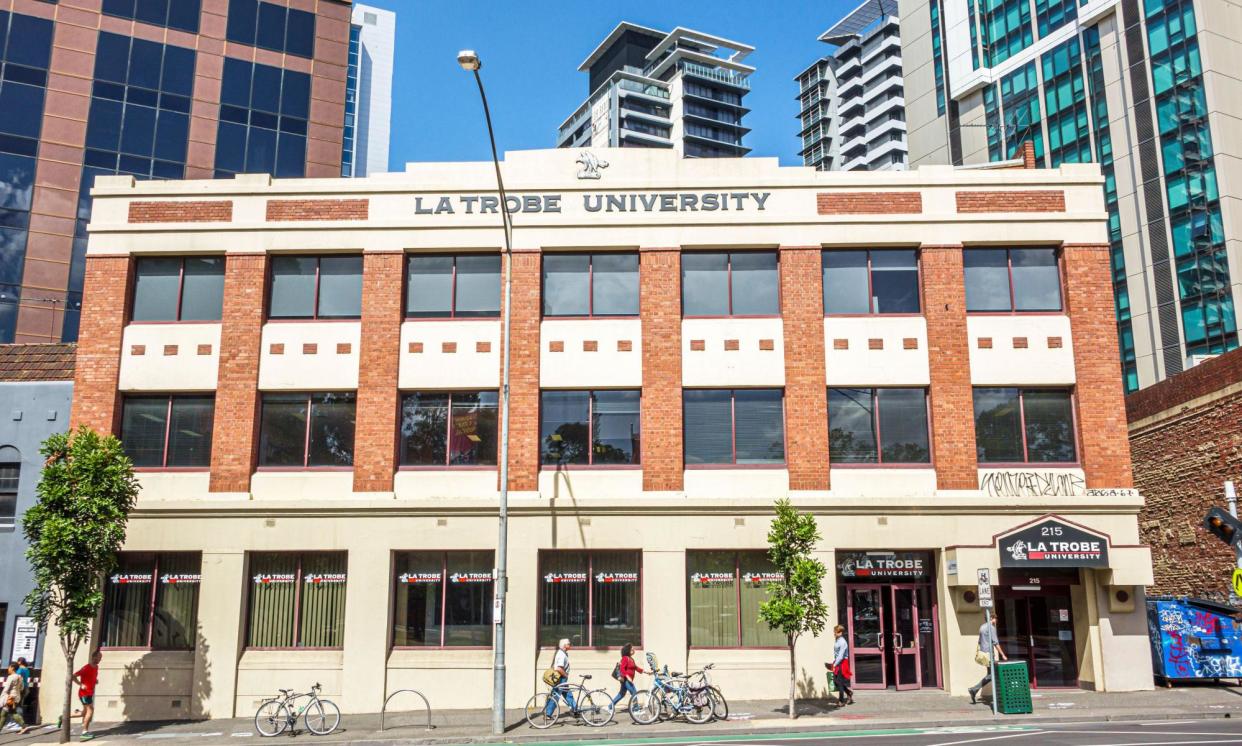Push to rename La Trobe University due to namesake’s links to ‘genocidal violence’

Dozens of staff and students at La Trobe University are pushing for the institution to be renamed due to its namesake’s links to Victoria’s colonial history.
In a submission to the state’s Indigenous truth-telling inquiry, a cohort of 57 staff and students, including professors and lecturers, has proposed the university be renamed due to Charles La Trobe’s role in colonising Victoria. But the university said it had no plans to rename the institution and said the issue had not been raised during consultation for its Indigenous strategy.
La Trobe was the first superintendent of Port Phillip district from 1839 to 1850 and the first lieutenant governor of the new colony of Victoria from 1851 to 1854.
The submission said the university’s name was “inappropriate” due to the role that La Trobe played in colonising Victoria. It argued renaming would allow Victorians to better understand the state’s history from a First Nations perspective.
“In the spirit of truth-telling being encouraged by the commission, we think that it is inappropriate to name a public institution and place of learning after Charles La Trobe,” the submission to the Yoorrook Justice Commission, Australia’s first formal Indigenous-led truth-telling inquiry, said.
“It must be acknowledged that La Trobe was the chief government official in Victoria during a period of genocidal violence.”
Guardian Australia’s Killing Times series documented the massacres of First Nations people that occurred during the nation’s frontier wars.
“La Trobe’s period as Superintendent and then Lieutenant-Governor included the Eumerella Wars, as well as the 1843 Warrigal Creek Massacre in which up to 180 were people killed,” the submission said.
It also outlined La Trobe’s exclusion of Victoria’s First Nations people from the city of Melbourne, which included issuing an order in 1840 that no Indigenous people were to visit the township.
The submission pointed to examples including Canada’s Ryerson University being renamed Toronto Metropolitan University in 2022 due to the role its namesake, Egerton Ryerson, played in designing the country’s residential schools for Indigenous children which forcibly separated children from their families.
“These examples show we do not need to retain names that celebrate harmful colonial ideas, figures or sites,” it said.
The submission said it hoped Yoorrook would “support our call for a name change as part of your broader commitment to truth-telling and justice”.
Victoria’s Deakin University last year resolved to create a truth-telling statement to acknowledge the history of its namesake.
The institution is named after Australia’s second prime minister, Alfred Deakin, who was one of the chief architects of the White Australia policy.
The submission said La Trobe did not commit or commission direct acts of violence against First Nations people but he did “maintain and exacerbate the conditions that led to violence, most directly by encouraging continuing settlement of Aboriginal countries by Europeans”.
An article on the university’s website, authored by two of the submission’s signatories, says the La Trobe played an integral role in the dispossession of Indigenous people in south-eastern Australia.
La Trobe was active in the UK’s anti-slavery movement and worked as a teacher in England before migrating to Australia, the article said.
Victoria’s First Peoples’ Assembly – the democratically elected Indigenous body – will begin negotiating a statewide treaty with the government this year. The assembly’s co-chair, Ngarra Murray, has flagged that dual naming would be discussed during treaty negotiations.
Last week, Yoorrook – which has the same powers as a royal commission – concluded public hearings focused on inequalities in health, housing and education faced by First Nations people.
The inquiry has a mandate to investigate and create a public record of the systemic injustice experienced by First Nations people in Victoria since colonisation, including inequalities that persist today. It is due to deliver a final report by June next year that will make recommendations for reform and redress.
A spokesperson for La Trobe University said it was aware of the submission to Yoorrook.
“The University recognises Australia’s colonial history and its ongoing impacts, including the history of our namesake,” the spokesperson said.
“We are committed to promoting Indigenous leadership, self-determination, and knowledge, as demonstrated through our Indigenous Strategy launched last year. We support Indigenous Peoples’ push for voice, treaty, and truth as described in the Uluru Statement from the Heart.”
The spokesperson said the university’s Indigenous strategy was informed by extensive consultation with First Nations staff and students.
“While a name change wasn’t raised during the consultation, this doesn’t mean it’s not a genuine concern for people,” the spokesperson said.
“Although the University has no current plans to change its name, we are always willing to hear feedback from our community, and particularly from First Nations students, staff, and communities that surround our campuses in Melbourne’s north and regional Victoria.”

 Yahoo News
Yahoo News 
